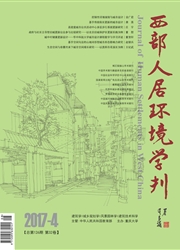

 中文摘要:
中文摘要:
进入存量规划时代,城市更新为主的城市规划将面向更加复杂的研究对象,从物质空间规划转向到主体与物质空间相互叠加的“社会+物质”空间规划。城市规划公众参与作为协调多元主体需求和意愿的平台和手段,变得越来越重要。以北京旧城保护区更新实践的为研究对象,划分为政府主导型更新和社区主导型更新两种模式,选取四个典型案例,参考政治科学和政策科学理论,将公众参与过程看作一个政治互动过程,建构多主体博弈系统模型,研究不同价值取向的多主体及其博弈过程,进而对其公众参与系统进行对比分析与总结,并提出城市旧城更新中公众参与的改进建议。
 英文摘要:
英文摘要:
Entering the inventory planning era,urban planning,which mainly include urban regeneration will face more complicated study object:from the physical and spatial planning towards to"social+physical"spatial planning that be superimposed of people and space.As a platform and means to coordinate the demands and desires of multiple bodies,public participation in urban planning is becoming more and more important.This paper selects regeneration practice of Beijing old city conserve as the research subject,divides it in two modes:the government-led regeneration and community-led regeneration,and selects four typical cases to construct a multi-agent game system model and study the multi-agent and process of its game with different value orientation by refering to the theory of political science and policy science,considers the process of public participation as a political interaction process.Further,it compares and summarizes the public participation system,and puts forward some suggestions to improve the public participation in the urban regeneration.
 同期刊论文项目
同期刊论文项目
 同项目期刊论文
同项目期刊论文
 期刊信息
期刊信息
